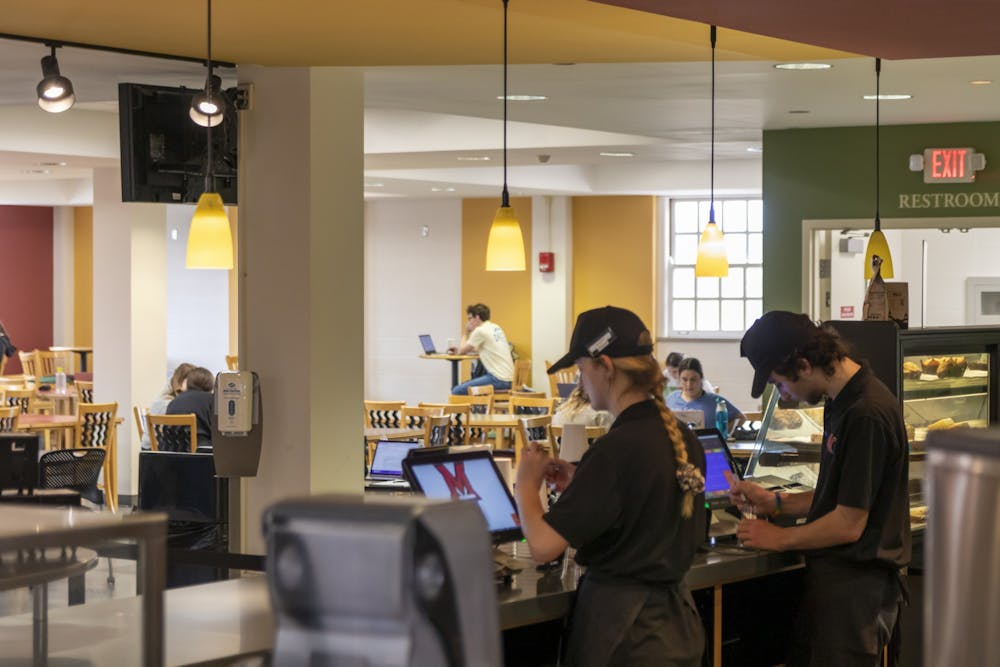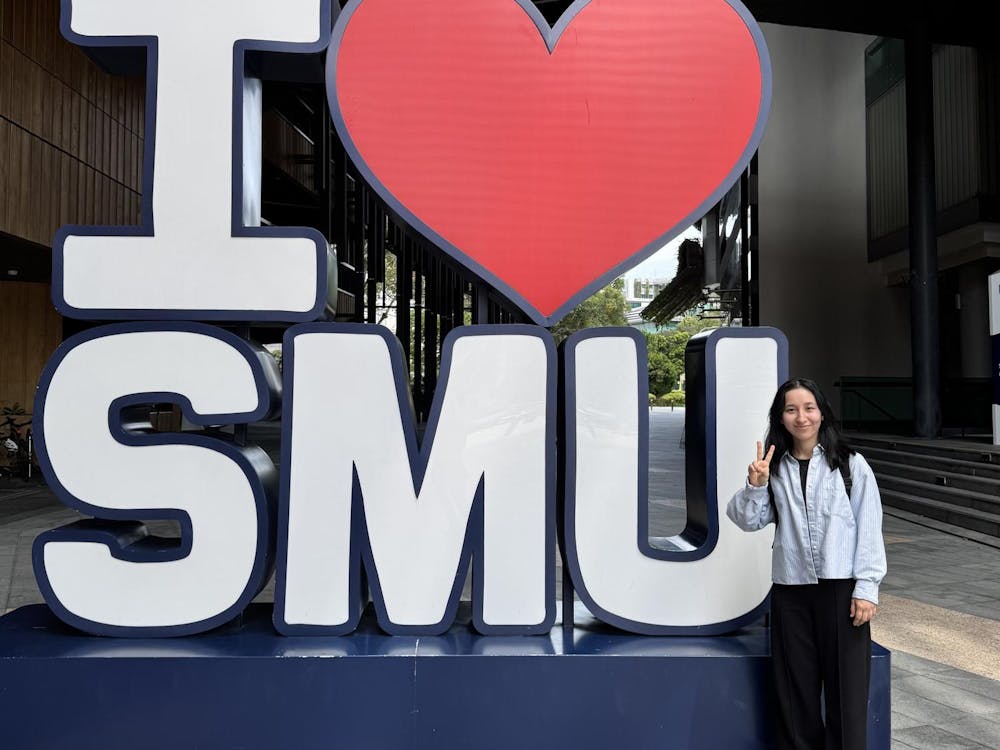For the past 16 years, King Café has been the hallmark of social life at King Library, functioning as a space that offers affordable meals and drinks, a serene atmosphere for study sessions and a location accessible for both on-campus and nearby off-campus students.
King Café is unlike any other coffee shop on campus; it offers a refreshing contrast from the long lines of Shriver Starbucks and a more sectioned-off atmosphere than Armstrong’s Café Lux, making it one of the few campus coffee places where you can get a coffee in under five minutes and be guaranteed a place to sit.
Recently, it was announced that Aramark has plans to eliminate this beloved Miami campus location and replace it with Village Juice Company, a cold-pressed juice restaurant.
The Village Juice Company was founded in 2014 amidst the rising trend of superfood restaurants.
The superfood trend — which has made once-cheap ingredients like sweet potatoes and quinoa suddenly ‘trendy’ and less affordable — strongly contributes to gentrification.
Rather than making healthy foods widely available, superfood restaurants make certain healthy foods—such as quinoa and sweet potatoes—‘trendy,’ causing a surge in price that results in $13 acai bowls and $15 salads: options lower-income college students can’t afford to splurge on.
Looking at the Village Juice Company menu offered at the University of South Carolina as a model of comparison, the addition of a Village Juice Company to King Library would radically increase the cost of dining at King Library.
My typical coffee order at King Café is a caffe latte, which costs $3.75. I could drink this latte every single day and not run out of declining dollars. If I want a meal at King Café, I use my meal swipes to get one of the York Street sandwiches or salad options or I’ll spend a few dollars for a pastry.
Not only does the Village Juice Company not offer coffee or tea, but the cheapest drink on the menu is over $8, with the typical smoothie and juice costing over $10.
If I ordered Nut Butter & Banana Toast ($11) and a Reboot Juice ($10.45), my breakfast would cost just as much as I make in a shift at my on-campus job — over $20 alone for just toast and juice.
The change to Village Juice Company would more than double the current cost of smoothies and muffins, and the cheapest menu item — a matcha bar — costs more than King Café’s most expensive coffee.
I don’t think an on-campus dining option embodies Love & Honor if the price points are so exclusive that five weeks of working my two on-campus jobs would not even pay for a week’s worth of meals at this restaurant.
Enjoy what you're reading?
Signup for our newsletter
I understand the desire to increase the amount of healthy foods offered on campus, but how much are we really increasing campus health if this will double the cost of salads at the library?
I cannot help but question the diversity of voices in the room where the decision to get rid of King Café was made; if Aramark consulted a sample of everyday Miami students, I doubt they would be begging for expensive cold-pressed juice instead of coffee.
This brings me to my next point, and perhaps my biggest concern about this proposition: the juice.
When I dove into researching the company’s juices, I was off-put by the $180 3-day juice cleanse it sells.
Fad diets like 3-day juice cleanses can trigger eating disorder behaviors, not to mention the fact that drinking juice doesn’t actually remove toxins from your system. Most scientists agree the healthiest thing for your body is whole fruits, vegetables and grains.
Beyond my reservations against juice cleansing, what really caught my attention was something much more dangerous: this company does not pasteurize their juice.
Village Juice Company’s website claims that pasteurized juice is “nutritionally deficient and pointless.”
This could not be further from the truth: pasteurized juice is just as nutritious as unpasteurized juice, and whatever potentially small losses in nutrients occur in the pasteurization process are indubitably outweighed by the benefits of pasteurization.
Our government requires all juices in K-12 schools to be pasteurized, and for good reason: unpasteurized juice can cause serious and even deadly illness, including E. Coli, hepatitis and botulism.
I don’t know about you, but I don’t want my beloved Miami grind coffee replaced with drinks so scientifically-unadvisable that they have a government-mandated warning label.
Beyond the threats the Village Juice Company poses to both students’ wallets and health, I worry about what this change would do to the serenity and coziness of King Café.
Books and coffee go together; the library atmosphere and the quiet coffee shop atmosphere complement each other perfectly.
If this balance was interrupted by the presence of a bustling, overpriced restaurant location, the basement of the library would no longer be a peaceful place to sip coffee and study — it would be a 30-person-long line of loud students and an impossible place to focus on schoolwork.
Instead of gentrifying our Café, Aramark should use its expertise in dining to help us expand the Café’s existing menu.
I am fully supportive of a renovation of King Café — I know that the wobbly table legs need replacing, and an expansion of the King Café menu to perhaps include fresh sandwiches, a fresh salad bar or an oatmeal bar could be incredible.
But as a regular of King Café, it would break my heart if I could no longer get my morning coffee at my campus library coffee shop.
Aramark, don’t ruin this Miami tradition: save King Café.




